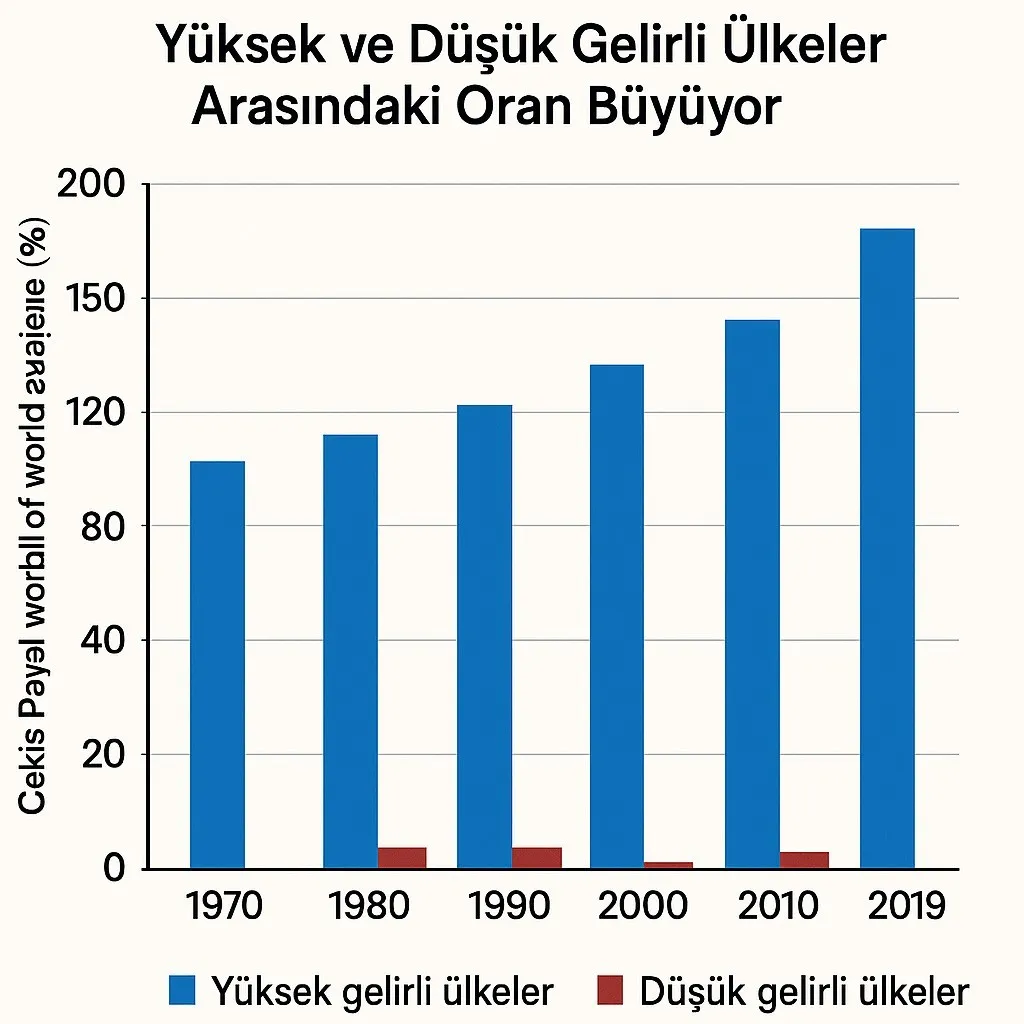Income Differences Are Widening: The Ratio Between High and Low Income Countries Is Growing
Yayın Tarihi | 24 April 2025, Thursday

Between 1970-2019, the income gap between high-income countries and low-income countries is gradually increasing. In 2019, low-income countries received only 1% of the per capita income worldwide, while high-income countries remained well above this average. The relationship between income and consumption is also noteworthy. Since consumption is a variable that shows less fluctuation compared to income, it reflects welfare more accurately. The study reveals that there is absolute consumption convergence between high and low-income countries, and conditional convergence among income groups. Saving habits and consumption patterns are among the main factors affecting economic growth.
How Do Consumption Expenditures Affect Income Convergence? New Research Reveals Differences
The research aims to understand income convergence more deeply by examining the differences between income and consumption. The study highlights the strong relationship between income and consumption and emphasizes that consumption expenditures reflect welfare more accurately than income. The research examines the per capita consumption expenditures of countries in different income groups over 50 years, revealing the factors affecting consumption convergence. These findings provide important information for policymakers aiming to improve global living standards.
Consumption Convergence Investigated: Saving and Consumption Behaviors Play a Determining Role
This study examined the determinants of convergence in per capita consumption expenditure. Analyzing data from 1970-2019, the study reveals that saving tendency and consumption behavior play an important role. The research states that high-income countries show rapid convergence in line with income convergence, while in middle-income countries, savings shape consumption patterns. These findings emphasize the importance of policies that encourage savings to sustain consumption convergence in these countries. Future research aims to examine the effects of international trade and government policies on consumption dynamics.
Study Link: https://doi.org/10.1007/s10663-024-09620-4


